Borewell Water Purification
Is your borewell water safe for drinking? Borewell water often contains high TDS, hardness, iron, and harmful microbes, making it unfit for consumption and damaging to appliances. Unlike municipal water, borewell water needs specialized treatment to meet drinking water standards and protect your health.
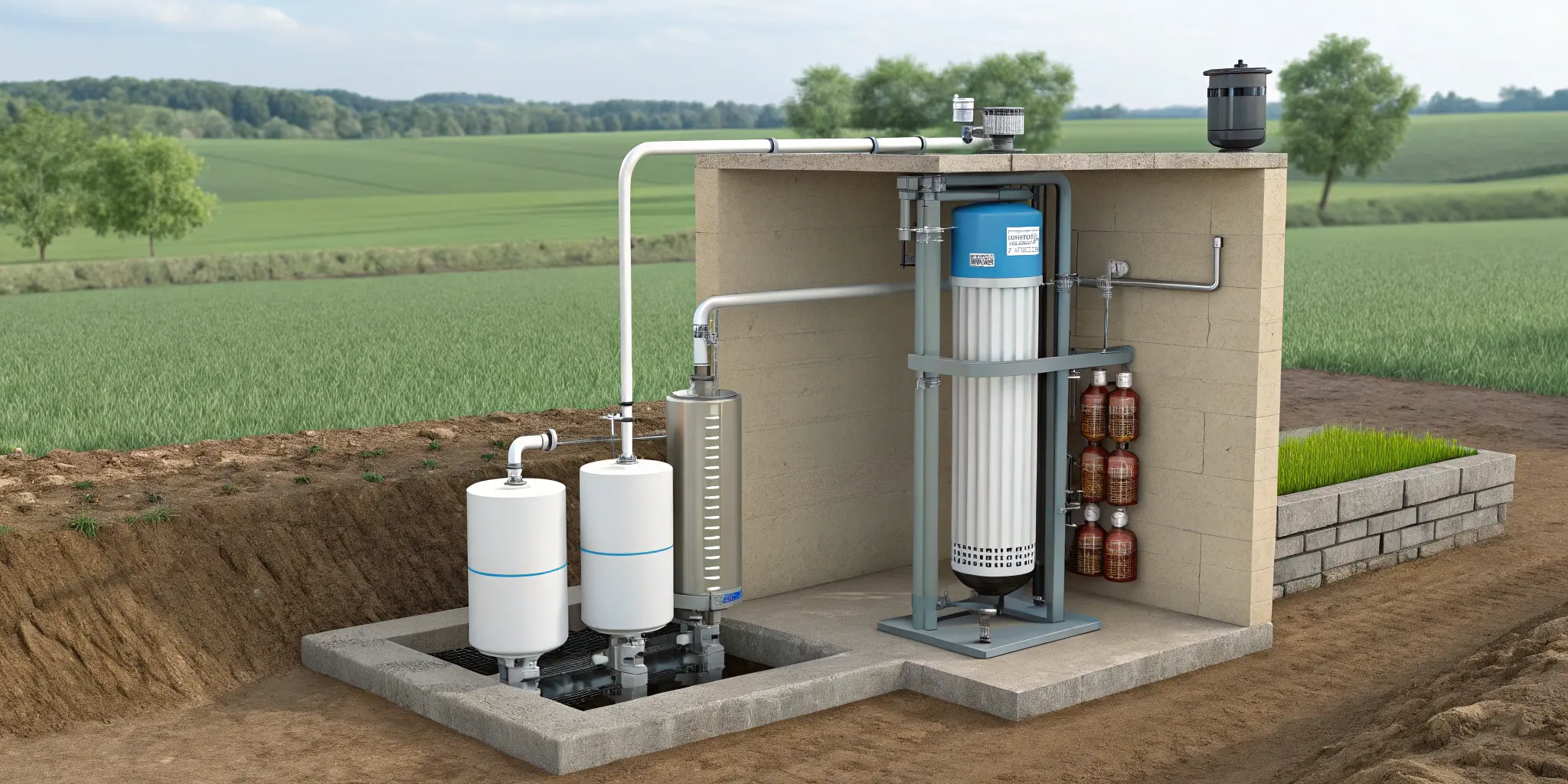
Why Borewell Water Needs Special Treatment
High Total Dissolved Solids (TDS): Often exceeds 500 ppm, causing a salty taste and scaling.
Iron & Heavy Metals: Leads to reddish stains on sinks and clothes, and may pose health risks.
Microbial Contamination: Especially during monsoon; bacteria can cause waterborne diseases.
Hardness (Calcium & Magnesium): Creates scale buildup in pipes, geysers, and washing machines.
Best Borewell Water Purification Methods
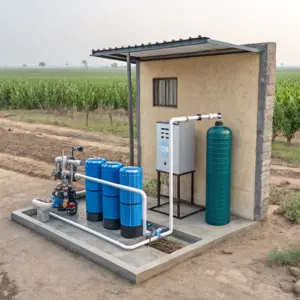
RO Filtration for Borewell Water
Removes excess TDS, heavy metals, and microbial contaminants.
Best for drinking and cooking purposes.
Combine with UV + mineralization for safe and tasty water.
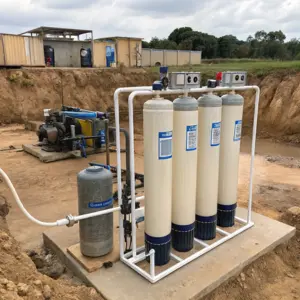
Sediment Pre-Filtration
First stage in borewell treatment.
Removes sand, silt, and suspended particles, preventing RO membrane clogging.
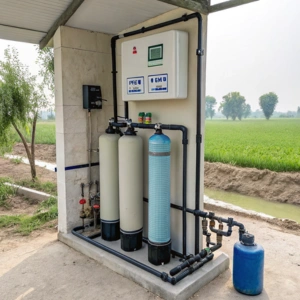
Sand Filter Systems
Handles large particles and turbidity.
Ideal for whole-house and industrial water treatment.
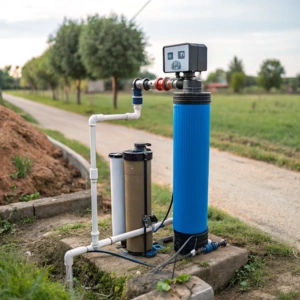
Borewell Water Softener
Removes calcium and magnesium, reducing hardness.
Protects plumbing, geysers, and appliances.
Borewell Water Treatment Plant – How It Works
Stage 1: Sediment Removal (Cartridge or sand filter)
Stage 2: Iron & Heavy Metal Filtration (Specialized media filters)
Stage 3: Water Softening (Ion exchange process)
Stage 4: RO Filtration (Ensures potable water quality)
Stage 5: UV Disinfection (Final barrier against bacteria)
How to Choose the Right Borewell Water Solution
For Drinking Water: RO + UV + Mineralizer.
For Whole House: Sediment Filter + Water Softener + UV System.
For Apartments / Industries: Customized treatment plants based on TDS & flow rate.
Cost & Maintenance Guide
Domestic RO System: ₹12,000 – ₹25,000
Whole-House Softener: ₹15,000 – ₹40,000
Maintenance: ₹2,000 – ₹4,000 annually for filter replacement.
Frequently Asked Questions
1. What is the ideal TDS level for drinking water?
The ideal TDS for drinking water is 150–300 ppm as per BIS (IS:10500) standards.
2. Can borewell water be used for drinking after boiling?
Boiling only kills microbes. It does not remove TDS, hardness, or heavy metals. Use RO for safe drinking water.
3. Which is the best filter for borewell water?
For borewell water, a RO + UV system with pre-filtration and mineralization is recommended.
4. How often should I service my borewell RO system?
Service your RO system every 6–12 months, depending on water quality and usage.
5. Is UV filtration enough for borewell water?
No. UV kills bacteria but does not reduce TDS or hardness. Combine with RO for best results.
6. What is the cost of a borewell water treatment plant?
Domestic RO systems start from ₹12,000, while whole-house setups range from ₹15,000 to ₹40,000.
